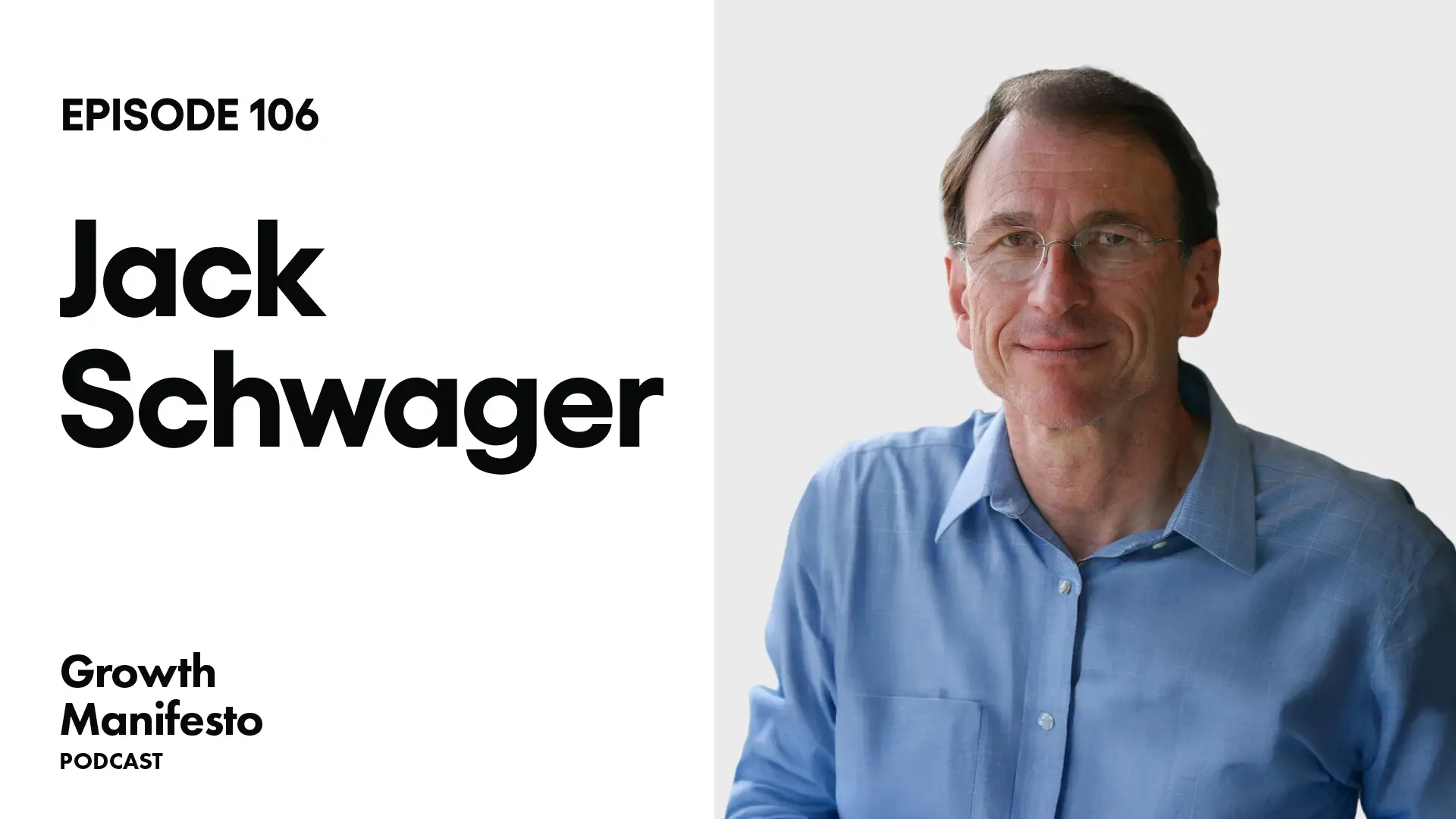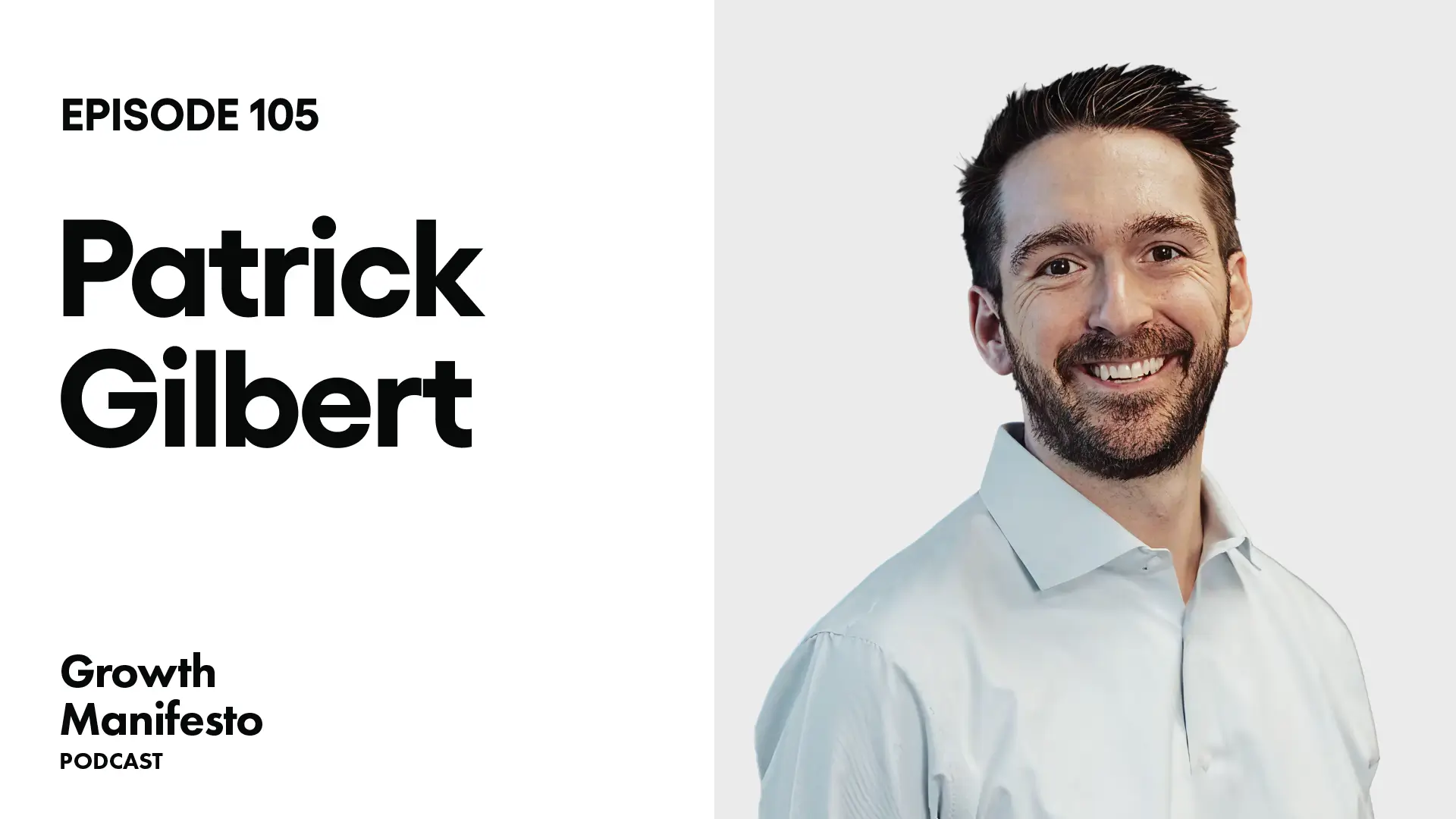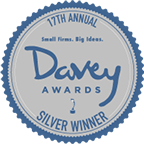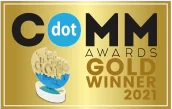SEO in 2020 and beyond with Brian Dean of Backlinko
This episode is a discussion with Brian Dean – Founder of Backlinko (one of the leading SEO blogs on the planet) and Co-founder of Exploding Topics. We talk about what’s working today, how to rank a website from scratch, how big brands can leverage SEO, and where it’s going in the future (plus a lot more).
SHOW NOTES
- 00:00:50 Brian’s introduction to the Growth Manifesto Podcast
- 00:02:39 What happened in the 5 years leading up to when you founded Backlinko?
- 00:04:27 What hasn’t changed in SEO since you first started?
- 00:06:23 What has changed in SEO in around the last three years?
- 00:08:14 What do you attribute to your success in the SEO industry?
- 00:11:05 The Skyscraper Technique
- 00:13:20 How do you come up with SEO ideas and experiment them like placing animated GIFs in your blogs?
- 00:15:52 Compete on a different dimension to rank your content higher
- 00:19:34 Have experts write your content | “If you want an article on how to unclog a toilet, don’t hire a freelance writer. Hire a plumber.”
- 00:24:32 If you’re willing to go that extra step and work a fraction harder than everyone else is, that’s where the best results are
- 00:25:49 If you had to start again from scratch, what would your approach be to rank in the competitive space?
- 00:28:46 What’s the first thing you would do to get links when you’re just starting?
- 00:31:21 Does broken link-building still work?
- 00:32:42 What would you advise bigger brands as a strategy to rank higher and increase overall traffic & sales?
- 00:37:18 Have you ever seen a brand that had a “noindex” blog yet still rank high?
- 00:39:20 Can you take down a website’s rankings with toxic links?
- 00:41:23 Do blog networks still work?
- 00:44:27 How do you see SEO changing in the next 3-5 years?
- 00:46:49 What are your thoughts on Google’s Voice Search?
- 00:48:16 Brian talks about Visual Search and Augmented Reality
- 00:49:41 How did you figure out the video side of ranking on sites like YouTube?
- 00:54:28 Would you prefer a top ranking on video or a top ranking on search?
- 00:55:19 Brian talks about “Exploding Topics”
- 00:59:51 Quickfire questions with Brian
- 01:06:17 Ending the Interview with Brian
LINKS
- Brian Dean on LinkedIn
- Backlinko
- Exploding Topics
- The Skyscraper Technique
- The 4-Hour Workweek: Escape 9-5, Live Anywhere, and Join the New Rich
—
You’re listening to the 2020 Marketing Series on The Growth Manifesto Podcast, a Zoom video series brought to you by Webprofits where we talk about how to drive business and marketing success through the rest of 2020.
Hosted by Alex Cleanthous.
- YouTube: https://www.youtube.com/c/GrowthManifestoPodcast
- Instagram: https://www.instagram.com/webprofits/
- LinkedIn: https://www.linkedin.com/company/web-profits/
- Facebook: https://www.facebook.com/Webprofits/
- Twitter: https://twitter.com/webprofits
- Agency: https://www.webprofits.io
TRANSCRIPT
Alex: Today we’re talking with Brian Dean, the founder of Backlinko, the co-founder of Exploding Topics and creator of SEO that Works, is that still the case? Yeah. It’s still you?
Alex: It’s still you, right? That’s all you. And that is by far the best SEO training program on the Internet. So if you haven’t seen it yet, I would highly recommend that’s something to check out. Yeah. So I think the first time I heard about you, Brian, was on the Okay Doc blog. I think it was something with Noah Kagan at the time. Yeah. So just quickly, let’s start by how did you get into SEO?
Alex: And when was that? Was that back in 2008?
Alex: And then, according to your LinkedIn, because I was trying to think the first time I heard about you, but I was like, that’s not going to be helpful. So I checked out your LinkedIn, it says that you founded Backlinko back in 2013. Is that right?
Alex: So in the five years between that point and the starting, basically the founding of Backlinko, what happened in the five years?
Alex: Hard learning.
So I would do freelance writing, freelance copywriting to pay the bills, and then when things were good, I would stop doing that stuff, and I would just make money from AdSense, but it was very peak and valley. Until the summer of 2012 is when I finally sort of put the pieces together and launched a successful website of my own. And I was like, “Oh, this is cool.” I used white hat SEO for the first time. I was like, “Oh, that’s really cool. Let me learn more about this whole white hat SEO thing,” which I never paid attention to. But I couldn’t really find anything out there about it. And I realised that there was probably a gap in the market there, so I created Backlinko as the blog that I wanted to read.
Alex: Yeah, right. And so that was seven years and eight months ago, roughly, according to the LinkedIn…
Alex: Yeah, yeah, no…for sure, for sure. Well, I like to do my research, but quite a lot has changed since that time, but there’s also stuff that hasn’t changed. Right? So let’s start with, of course, what hasn’t changed? In that…
Alex: Yeah, what hasn’t changed because obviously there are some core fundamentals, I think, that have been the same since I started, I mean, how long ago now? Yeah, but so yes, what hasn’t changed? Let’s start with that.
So it’s something that is probably a little less important than it was seven years and eight months ago, but it’s still super important, and we ran a big ranking factor study earlier this year, where we analysed in 11 million Google search results, and we found that links still correlate with rankings really highly and that links to a page correlate the whole domain authority of a site. So all the links that point to the site, that stuff hasn’t changed one bit, I would say. Except for the fact that links are probably a little bit less important and you don’t need to go crazy with the exact keyword on your page as many times, but those fundamentals as you call them, which is absolutely correct, Alex, haven’t really changed at all.
Alex: That’s great. That’s great. And you just mentioned, we’ll come back to backlinks for a second yeah, but what has changed. Let’s say in the last three years, right? Because obviously the things have changed. I think you just kind of spoke about you don’t need to get as many links anymore, is that the one thing? But yes, what has changed in the last three years?
So like the last Game of Thrones, for example, you search for Game of Thrones a day before the end, it would be a certain set of results and the next day, it would be a completely different set. And part of it is because new pages are coming out, but a lot of it’s because people aren’t clicking as much on Wikipedia or HBO, they’re clicking on the dead spin article about it, their clicking on all the people that were poo-pooing on the episode. Google is measuring that, and they’re matching results accordingly. So they’re really good at figuring out, are these results making people happy? And if they aren’t, they’re perfectly happy completely rearranging the results until they have something that makes people happy.
Alex: Yeah, right. And so you have had some pretty awesome success in the SEO space, right? Not only have you been able to rank our website and get a bunch of traffic from SEO, but you ranked it for the keyword SEO, which is probably the hardest keyword to rank across any of them, right? Because there are so many people trying to do this, right? But then there’s you, in the basement of your parents, can’t afford PPC, trying the niche sites and the AdSense, I mean, I did that stuff too, right? Trying to kind of arbitrage AdWords, trying to kind of just do the make-money-fast stuff, right?
Alex: But what do you think it was with your approach that kind of worked? Because something which you’ve done has led you to become the foremost expert in an extremely competitive industry.
Now, if you just did the tactical stuff, it’s probably going to get you certain results, but like you found SEO that works, it is helpful to have a whole plan and a program and all that stuff. But for the sake of the blog, I focused on the tactical stuff, and it seemed to resonate with people. And I would say it’s the number one thing because it did double duty, it helped me stand out in the space like you said, that’s super competitive, but also those things rank really well on Google because of the things I mentioned before with the search intent. If you’re searching for like SEO strategies, or SEO techniques or keyword like that, and you land on the page, and it’s like build relationships, create great content, all this fluff, you’re going to bounce back to the search results, and then you’re going to land on one that has actual information, you’re going to stick to it. And Google is going to measure it and across the entire website, if all your content is like that, then it’s going to have all the good engagement signals that Google wants and your traffic’s going to go up.
Alex: Yeah, right. But I remember your first article that was the pilot; it was like 100 packed… I forget what it was exactly, but it was some huge, big piece, it was the biggest piece of content out there around the topic of SEO. And I think that was the advice which you were providing at the time is to create a piece of content that’s so good, that it’s far superior compared to anything else out there. Yeah, is that right? Is that what…
Alex: Still, now.
Alex: That was your claim….yeah! The skyscraper technique. That’s the one, I think…yeah, that’s the one…
Alex: So high level, what’s the difference between the 1.0 and the 2.0?
Alex: Yeah, right. So I was having a look at the advanced SEO factors, the 17 advanced SEO factors, which are awesome by the way, so anyone that’s listening, you should go check that out on the Backlinko blog, but you talked about actually including stuff like animated GIFs, because it keeps people kind of engaged. Right? It keeps people there because it’s so interesting. How did you come up with stuff like that? Because I mean, this is interesting stuff that you’re experimenting with. Right? But you’re doing it on a site that if you get it wrong, you lose a lot of traffic.
Alex: I’m sorry to do that. So never think about that, please—experimenting.
So it was like you could just take a video clip, put it on a page, and it would automatically play. And it’s great because it’s like an animated GIF, but it looks really nice. So we started using those for our little tutorial steps. And as it turned out, people really liked them. And I noticed that pages that had those, people would stick to the page a little bit longer, which just makes sense because as you’re scrolling down, it catches your eye, you’re more likely to stop, watch it, and then not hit your back button, which is what you want as few people to do as possible.
Alex: Yeah, because I can attest that, like as I was scrolling through the advanced SEO tactics, I saw some animated GIFs and I lingered on them, I was like, “This is interesting. I haven’t seen it before,” right? And so there’s a whole thing of if something’s fresh, it gives you an advantage, right? But if everybody starts to do it, then you got to find the next thing. But just quickly, just coming back to the content, right? Is to find the content that’s already out there that has a bunch of links and make something better.
Now, that was the skyscraper technique. That is still the skyscraper technique, but since you started talking about the skyscraper technique, what was that? Like six, seven years ago, or eight years ago, even, the size of content has just gone out of control. There’s some pieces of content that are just like 30,000 to 40,000 words long, right? And so it’s getting harder to compete in some spaces, right? So how would you compete in something like that when there’s awesome content already out there, but you have to make it work somehow. Right? Say, for example, it’s like a bet. Right? It’s a bet, and the goal is to rank above that specific…so how would you do it?
Another way to compete is to make your content, write your content, or as you say, have your content written by someone who has done the thing they’re writing about. And that sounds like an obvious thing, but you’d be surprised how many keywords you search for, and nine out of 10 of the articles, the person has no idea what they’re talking about. They’ve never actually done the thing. So just by having someone who has real-life experience, your content’s going to stand out. We’ve all read this; I’m sure you can relate, Alex, you go to a page, and you can just tell it’s just some freelance writer who has no idea what they’re talking about, they just opened eight tabs, regurgitated what they read, it’s already ranking. And that…it passes Copyscape, that’s the article. You can create something truly original in the real original content sense of the word by hiring someone who’s actually lived through the thing.
So let’s say you’re writing an article about the keto diet. Well, you should hire someone who’s done it or a dietitian who believes in it or someone who’s a scientist in the space, that’s going to have a lot more pop than a piece of content written by a freelance writer who’s never dieted, has no idea what it is, just learned about it today when they got the . So that’s another dimension you can compete on. So I would look out, if someone has 10,000 words, I wouldn’t be like, “Well, now I need to do 20,000 words.” Because at some point, it gets ridiculous. And it also doesn’t help with search intent, because if I’m searching for something, I probably don’t want 20,000 words. So there are other dimensions you can compete on besides just writing a big long piece of content.
Alex: Yeah, right. And so you just mentioned something super interesting. You mentioned actually just going and hiring experts, and so not hiring people who write but kind of hiring people that are experts who can write, right? And so is that a part of your workflows, but say for example, if you had to rank a website in a specific niche for example, is it to find the expert to help you to create that content first, then create the content after that, is that how you would approach it?
Alex: Yeah, that’s…
So it’s a lot more back and forth. But if you really care about creating something special, and you’re like, “Oh, man, we’re in this competitive space, how are we going to compete?” The number one thing I would recommend is have experts write your content. And they don’t even have to necessarily write the final draft. If they suck at writing, that’s okay. Let them provide the details. You can even do an interview like this, extract just the knowledge from their mind, and then you can clean it up later with an editor to make it read well.
Alex: Yeah, right. And so would you outreach to the blogger? Or would you call up, like the local plumber, for example, if you can’t find a plumber blogger, say for example, how far would you go to get that content? How far would you go?
For that, we do a more journalistic approach. We look at different stuff, and we cite other people, other experts work, we don’t have a fitness industry expert for one because then it’s just unwieldy. But for most sites, they have one niche, like this. That’s a weird case because we cover all different niches, but most sites cover one thing, like plumbing, or home decor, or DIY, or marketing or health, or nutrition, they cover one niche. So then you only really need to find really one or two experts, and you’re good to go. So I would go whatever length it takes. And the key is really like…
Alex: And so what do you say to them? I’m sorry, yeah…
Alex: No, the key is really what? Then let’s talk that point. The key is really…?
On the other hand, you might be in a niche where there’s bloggers that write about it. In that case, you can just go directly to them and be like, “I want to hire you for a project. How much would you charge for a blog post like this one that’s already published in their blog?” And it’s kind of ghetto Upwork, you can reach out to like eight people and see which ones reply, how good they are, and then choose one based on a combination of their writing style, their price, and all that stuff.
Alex: Yeah, the thing I like about that, and this is kind of the approach which I’ve always seen succeed, it’s the approach I’ve taken anyway, but the approach I’ve seen across the board is if you prepare to go that extra step a bit and to work a fraction harder than everyone else is, that’s where the best results are. And it seems like what people are thinking is, that extra step is just more words, but it’s not, it’s improved quality. It’s improved kind of stuff on the page, right? And so, it could be a shorter…it could be a piece of content that is basically shorter, but that’s better. Right? And it’s kind of to do the harder things, right? To take those steps first, right?
Alex: Here’s what you need to do. Exactly. Okay, cool. So next question. So if you had to start again from scratch, and you had no personal brand, so what would your approach…could you talk about the approach that you would use to rank in a competitive space?
And people visit it for that reason; they link to it for that reason. So I would do something like that, I’ll look at your blog like a product or like a marketing campaign, and do the opposite of what everyone else is doing. Everyone’s writing long stuff, write short stuff, everybody’s writing short stuff, write long stuff. If everyone is doing text, do video, if everyone’s doing videos, do a podcast. And, of course, you still want the foundation of any SEO campaign is going to be text-based guides and articles in that nature, but outside of that, what else can you do? And one of the things that probably not as many people are doing are videos and podcasts like you’re doing Alex. You’re probably finding it’s competitive but much less competitive than the SEO world. And in your niche, it’s going to be different, what people are doing and not doing but that’s going to be the key to standing out, is figuring out a platform or something that’s going to help you stand out. And it could also be a niche. You could just write about one tiny niche for a while like when I started Backlinko, I only wrote about link building for a year.
And that helped me stand out from the other SEO blogs because the other ones were talking about on-page SEO and keyword research and all that stuff. And I pretty much stuck to link building for a year, that helped me stand out. And then from there, you can expand out into more stuff. That way you’re known, this can help your brand. That’s the blog about whatever, B2B SaaS, that’s the blog about keto-diet desserts. If you have that little niche, it helps it stick in people’s mind. It’s like the 22 immutable laws of marketing that talk about that; people want to have space for like one or two brands in a category. So if you can be in that category, you can get some mind share, as opposed to being in the hundredth blog about marketing, or the hundredth blog about weight loss.
Alex: Cool. So that’s fantastic advice. And so now I’ve got the brand, I’ve got the blog, I’m doing topics around a niche. How do I get those fantastic links that everyone keeps talking about? You know what I mean? Like, cool, but I’ve just started out now, right? And so I don’t have relationships, I don’t have all these people that I know that have the articles and blogs, how would you start? So what’s the first thing…
Alex: …that you would do in that scenario?
So if there was a podcast about how to create a software, a piece of software, he would really focus on that part of the thing, how I created this software from scratch. If he had another podcast about acquisitions, he would be like how I got Brian Dean to buy my product. If it was a different podcast about marketing, he’d be like how I got on the front page of The Hacker News. And he would tailor that story for everyone, and he would go on, he would be like, “I’ll tell the story to your listeners.”
And because no one knows Josh, was almost even better, because you’re going to be the only guy who has a story versus if you have me on other than 150 podcasts, so it’s good, but it’s not like having this guy, even though he’s not well known, he has a unique story to tell. So people were surprisingly receptive to him. And those are great links, because they usually go on pretty authority sites, and you get a link in the show notes. So that’s something that really worked well. Another thing we did that worked well was broken link building, where we found broken links, and then pitched the Exploding Topics tool as a replacement for the dead link.
Alex: So does that still work? Because I’ve seen so many of those things just done poorly. What’s involved in doing it well then? Because geez, it’s just being done, again, with a shortcut way. Right?
Alex: It’s all just not quality. So what’s the strategy there? Just quickly, the super-high level.
Alex: That’s great. That’s great. Thanks for sharing that as well. Cool, so the completely other end of it, right? The big brands, right? That already have tons and tons and tons of links, if you step in and now to advise them on their SEO, right? Because they want to rank for the top keyphrase say, for example, it’s a home loans company, and they want to rank for home loans, and they’re not ranking for home loans, but they’ve got all these backlinks, and they’ve got all this authority, but what would you advise them as a strategy to kind of increase overall traffic and sales—and all the parts?
Those are gold because those pages are basically collecting dust not really doing anything. And you can redirect them to relevant pages on the site that you’re actually trying to rank. You’re also going to have tons of pages that don’t have links and don’t bring in traffic; I call them zombie pages. You can delete those, and just by deleting those, you can increase your site’s rankings because you’re going to condense your page rank across your site. And also, Google has even said that just they prefer to rank sites that have fewer higher-quality pages, it’s not to say you need a tiny site with ten pages, but if you have a lot of other pages, they’re dead weight that’s holding you down. That’s always the first move that I make with sort of a big brand that I work with.
Alex: And what’s the second move? Cool. So that’s now cleaned up, and now it’s time to get kind of proactive on creating stuff, right? So that’s kind of shrinking or reducing, what’s the next part? So what would you create then? Is it going to be a link building strategy, a content strategy? What’s the strategy you would…
Alex: General rules.
Now, and just by tweaking it and making it match a little bit, it can do a lot better. I’ve seen this happen, time and time again. And usually, for a lot of loans, that kind of loan, personal finance industry, it’s a calculator, it’s a function of some kind, because the landing page, the person that did the landing page is a conversion guy usually. And they’re like, “Oh, what we need to do is put a form above the fold, and then people will land on this form.” But that’s not how actually people get a loan. They calculate it first, they see the rate, and then they might reach out. And the other brands that do this best, they’re going to rank, and you’re going to have a great conversion rate, but you’re not going to have any visitors. So that’s the next thing I would do.
Alex: So it’s kind of easier and kind of harder. It’s easier because you don’t have to create as much stuff, but it’s harder because you need to diagnose what is the problem and it’s like a doctor. It’s like the more experience, the easier it is to diagnose, but if you’re a beginner, you’re not going to know what the issue is. Right? So it seems to be easier, but it’s also got its own separate challenges, right? Especially with the site size and everything else that could be happening on it. I saw this interesting thing the other day because I conducted an analysis of a website, and I’d seen that the whole blog was no index. Yeah, it wasn’t like no follow, it was just like no index, but they were ranking at the top just for these extremely valuable words. But all of the content was that… But it was created, I’d say a couple of years ago, and it was all the thin content, right? But they basically provide more business loans, right?
Alex: And their content was like, “Cool. So how do you do LinkedIn marketing?” And it was extremely short. They had all this stuff, and I was like, but they had no indexed it. And that was the first time I’d seen a company put that across the whole blog and still have ranked so highly. So have you seen that before? This whole thing of to not actually index it, but it still passes authority, as far as I could tell, to the main page.
Alex: Right.
Alex: But does it have value?
Alex: So it doesn’t have value?
Alex: It’s still followed though, it’s just no indexed, right? I don’t know. It was like…
Alex: Okay.
Alex: Yeah, right. Hey…
… yeah, look, that was something I saw and…
… I was like, “Look, I was going to ask,” yeah, I’m going to speak to Brian and said, “I’m going to ask him on it.”
Alex: A few more questions around SEO, just because that’s basically your specialty. Can you take down a website’s rankings with toxic links, do you think?
Alex: In your opinion.
Alex: Negative SEO.
But what happened was, people were like, “This is great,” now I can just spam my competitor who’s ahead of me, and then they’ll get knocked down, and they’re going to go from one to 10, and I’m going to replace them, which was happening, it was a real issue. Google, over time, has been able to just ignore bad links. And I’ve said several times in the record now that bad links, and unless you’re doing a paid link campaign, they’ll bust you with that, and they’ll give you an unnatural links penalty. But if you’re doing kind of general spammy stuff, it’s very rare; you’re going to get an algorithmic penalty because Google is really going to have a hard time saying it was actually you or one of your competitors trying to do it. How could they ever even know that? So lately they’ve just been ignoring bad links. So it’s probably possible if you’re good at it, but I don’t even know enough about it. But in general, it’s very rare you see a site that gets penalised from that.
Alex: Cool. So blog networks, they used to be a thing and do they still work? Or is that just something…
Alex: … it’s like toxic, it could be fake, could be helpful. Is it something that still works?
Alex: And it’s also that shortcut that we’ve just been speaking about, you shouldn’t be taking because if you put in a bit more effort, and if you do it the right way, it’s going to be long term because the part which I think everyone that hasn’t achieved SEO rankings yet, should kind of understand is that once you get them and you get hooked on that traffic, it’s one of the only ways where you can get so much free traffic and money without spending money. And so once that happens, now all of a sudden, you’re really scared about what if it goes down? This is my whole lifestyle, I pay for my family and my kid’s school or my sports or my holidays, and now all of a sudden you got bills that are now relying on those SEO rankings, right? And now, every time there’s an algorithm update, you’re sweating, you’re sweating big time. And because I’ve been around now, in this game for around 20 years, right? So I’ve been through Florida and Panda and Penguin and all of the animals, right? And I’ve seen people come and go, right? It’s an extremely big business, that was, what’s the word? Extremely, reliant on the search traffic, and then when that goes, they don’t have a business anymore, you know?
Alex: So that’s just kind of the word of warning to people out there that are thinking about doing the shortcuts because they work, and then they work too well sometimes, and then all of a sudden, you become reliant on it, and it just hurts. That’s bad.
Alex: Yeah. You’ve been there. I think we’ve all been there. Right? If you’ve been in this space, and you’ve experimented with this for a while. In terms of SEO in the future, how do you see it changing in the next three to five years, let’s say?
They had another update that targeted sites that weren’t optimised for mobile devices, guess what? Every site started switching to mobile devices. So they’re dictating the next move that millions of sites are going to take, and the reason for that is because, from their point of view, they want to rank sites that give people a good user experience. So the next thing they’re doing is the core web vitals, which are three, kind of mini ranking factors that are more or less how fast the page loads and how quickly you can interact with it. And that is going to go live in 2021.
And I think that whole core web vitals brand, will be multiple things in the future. It’s only three now, but I could see it being ten or even 20 things in the future, that whatever Google cooks up as important, they’re going to put it under that umbrella, and then everyone’s going to start doing it. But all of them will ultimately revolve around having a site that’s easy to read, easy to access, loads quickly, optimised for different devices. It’s not anything crazy, but they’re moving more towards that and away from some of the traditional stuff.
Alex: Yeah, right. Yeah, right. That’s really interesting. And what about, what was it called? The voice search thing, what was it? Like six, seven years ago, it was going to be the future, it was going to be the number one spot because all of the search results were going to happen on the series and in the Google homes and all that, but that never really happened, right?
Alex: It didn’t really become that thing.
Alex: People still like to search on their phones and on computers, right?
Alex: That didn’t change. Is that going to change, you reckon, or not?
Alex: Not really, no. I just kind of ask what’s the weather? What’s the time? What’s the time here? You know?
So another thing that I think is going to get big though is visual search. Google is already talking about how they have something called Google Lens that is basically searching with a picture. And people are doing that more and more, they already have a billion searches on it, and it just started. So if you open the Google app on your phone, there’s a little square thing, and that’s Google Lens. They haven’t done any promotion, but it’s already sort of taken off. And the reason for that is because it’s really good at image recognition now, so you could take a picture of almost anything in your room and Google will be able to search for similar things, identify what it is and then search for similar things. So I see that being big for like… It’s basically like baby AR; baby augmented reality. I can see that being a real thing, and that’s more in the five-year thing where we’re wearing a Google Glass, but a 2.0 version that just augments stuff you’re looking at.
Alex: Yeah, because…
Alex: Yeah, like Google Lens, they launched Google Lens like, must have been ten years ago or something, everyone freaked out because it was extremely invasive on everyone’s privacy. I think we’ve come quite a long way since then, and I think everyone’s going to be okay with it now, especially if it’s $100, which is I think…it was like 500 bucks at the time, 700 bucks at the time. That’s interesting. YouTube, a couple years ago, you started to go into YouTube as well as and said, “All right, I’m going to try to figure out the video ranking algorithm.” It’s like, “Cool. So I figured out the search results, and now I’m going to go into video,” and you figured it out. And I’ve done your course, I’ve got your course with all that stuff. It’s a highly recommended course, is available for sale still, that course?
Alex: Once a year. Okay, well, you should subscribe, and…
Alex: …you could pay for it, but if you’re into video stuff, but how did you figure out that side of it? Because obviously, it’s very different to search, right? They have completely different kind of things which they look at. And so why the transition? And how did you figure that out?
So it took me a while to really get into it, but once I did, I was addicted because I noticed how many views you could get and how valuable these views were, people are watching you on video, your brand, you’re sticking in their mind, it’s such a powerful medium compared to text. It’s kind of like podcasts; you’re in their ear, you’re kind of with them as they go through their day, super-powerful media. So I was sold on it from that point of view. And then in terms of figuring it out, I mean, it took a long time. My first few videos didn’t do well at all, and they looked bad; actually, I took a couple of them off YouTube because I was just embarrassed to even have them, they were so bad.
Alex: I’ve done that too, by the way, I took down all my old videos, I was like, “Oh, wow,” because it got so much better recently. So yeah, I hear you.
Alex: And that’s like in the structure of the video, right? So there’s kind of…
Alex: …the quick intro, and then hey, this thing’s coming up soon, and at the end of the video, I’m going to share some awesome stuff, blah, blah, that kind of stuff was more like you’re keeping them there. So that’s kind of the part which kind of… Is that the part? Like…
Alex: …keeping them there. There’s a bunch of stuff around that, doesn’t matter what the topic is, what are the keywords, what’s the length and all the other stuff, but that’s at the core, right? Is just create something that’s super interesting to people, right?
Alex: Yeah, sure. And so if you had to choose between, what’s the word, a top ranking on search or a top-ranking with a video, what would you prefer?
Alex: Why is search so much better for you than video?
Alex: Got it.
Alex: Okay, yeah, great. Cool. Just quick, let’s jump to Exploding Topics. Can you just explain what that is? Because I’ve seen it, but I would just like to hear the high level…quick intro.
Alex: And what’s the purpose of it? Why this business? So why did you do this business of all the next businesses to do, right? Why this one?
And while this was sort of going through the beta testing, alpha testing, I came across this site called trend.co. And I was like, “Oh, man, this is like ten times better than anything I imagined.” It’s way better than I was building, way better than I could even picture and I reached out to the founder of that, who was Josh Howarth, and ended up acquiring it from him. So since then, we’ve been working on it together, and about six months ago, we took on another co-founder, Kyle Byers, from Growth Badger, he’s our head of growth.
So it was sort of an accident, and then once we partnered up, he was already doing great with it, and then once we partnered up, it started doing a lot better, because I was able to give him resources and things like that. We rebranded it, it was called Trend, now it’s called Exploding Topics, so it was a lot easier for people to share and talk about. And it started doing well. So I was like, “Well, this seems like a good thing to keep going with.” But yeah, at the time, it was definitely not planned. It was, my next thing is going to be this. It was more like, “I’m building something on the side, sort of a side project.” And then when I saw Trend, I was like, “This is exactly what a trend-spotting tool needs to look like.”
Alex: And how should people actually be using it? Yeah, could you explain how they should be used? Because I’m assuming it’s for SEO.
And basically what we do is every week we send people kind of a collection of some of the best trends, and then how you use those is up to you. Yeah, a lot of people do use them, Alex, for SEO and content, and finding trends, I’ve used it myself for that, I’ve ranked for tons of keywords that I found from there that were so early, but we’re trending up and create a piece of content and ranked instantly. And at the time it was getting much traffic, but every day, they’re getting more and more. So that’s definitely one way to use it, and it’s one way that I personally use it. But there’s all different use cases, we have people from E-commerce, or like I want to create a Shopify store, I want to get a new product category. So air fryers might be blowing up, I want to create air fryers category on the E-commerce site. So kind of a lot of different use cases for the product, but they all have one thing in common, that people want to see what’s next before it becomes mainstream.
Alex: Yeah, right. Yeah, right. Well, I’ve subscribed, so 70,001 subscribers.
Alex: Because you could add Webprofits into that list of awesome companies…
Alex: Andreessen Horowitz.
Alex: That’s perfect, man. Cool, so just some big five questions I like to ask at the very end, yeah? So this is going to be a simple question, it’s the first thing that comes into mind. Yeah? So let’s start. It’s going to be really, really standard questions.
Alex: It’s nothing scary or anything like…
Alex: No, if you had to choose one channel or tactic to drive successful growth, aside from SEO, then what would it be?
Not SEO, you can’t say SEO.
Alex: Okay, cool. Okay. Because that you love search still, right? Is that right?
Alex: Scalable, got it.
Alex: Of course, what book has had the biggest impact on your success?
Alex: Okay, yeah, very cool. Yeah, because I read that book, I was like, “Oh my god, I get it. I can work for four hours per week now, and that’s it.” And it’s like I’ll have been working 100 hours a week ever since. So…
That’s what I meant. That’s exactly what I meant when I said I didn’t use it practically.
Alex: Yeah. Exactly. Of course, which number one piece of advice to hire awesome people?
Alex: Okay, that’s a fantastic one. I like that one. Cool, how do you relax after a crazy day at the office or at the home office or at the SEO ranking factory?
Alex: Yeah, I had a game this evening actually…I got…
Alex: …I got smashed so hardcore, but that was good because he’s so much better than me, and that’s how you get better, but…
Alex: …I didn’t check my phone once because I was just like, “Come on.” It’s basically, what’s it called? The winner psychology, “Come on, man. You can do it, man.” There’s a skill level required too.
Alex: There is a skill.
Alex: Because I had…I was losing
Alex: I’m competitive without the skill to win like I’m okay.
Alex: This guy was way better.
Alex: I didn’t say that it was a rational thing.
Alex: What’s your best piece of advice in terms of productivity or time management?
Alex: Well, and that would take you some time to get into the habit of that, because how hard is it not to check your phone in the morning for an hour?
Alex: 10 minutes.
Alex: For sure. Second last question. So what’s the best piece of business advice that you’ve ever received?
Alex: Yeah, great. And I think that’s a really good one, because it’s easy to get bored as an entrepreneur, it’s easy to get bored when things are working, and it’s easy to just want more without having an expertise to get more. It’s like my tennis game like I want to win, but I ain’t got the skill to beat that guy.
Alex: Anyway, cool. And what do you do for fun apart from tennis? Yes, that’s how you relax, but apart from that.
Alex: That’s nice.
Alex: Oh, that’s awesome. That’s it, Brian. Hey, it’s done. Thank you so much for coming on the podcast. This has been a super-enjoyable conversation. I got to ask all of the geekiest questions around SEO that I could possibly ask, and thank you for sharing across the board on the topics that we discussed because I know that we went into a lot of different areas. I appreciate actually how open that you’ve been. So thank you so much. So for anyone that’s listening, subscribe to Brian’s site at backlinko.com, and check out explodingtopics.com or .co? .com?
Alex: .com, explodingtopics.com and backlinko.com. I get excited, so this stutter comes out, especially when I’ve got the quickfire questions, I should call them the slow fire questions actually, so I can relax a little bit towards the end.
Alex: Yeah, but…
Alex: Well, maybe I should ask a couple of wacky ones in there, but that’s not my style. I just want the content, you know?
Alex: The insight. So Brian, thanks so much for coming on the podcast, mate, and we’ll talk soon.
Alex: Thanks for listening to the Growth Manifesto Podcast. If you enjoyed this episode, please head on over to iTunes and give us a five-star rating. For more episodes, please visit growthmanifesto.com/podcast.
LINKS
http://doc-ok.org/
https://backlinko.com/
https://explodingtopics.com/blog
https://www.moz.com
https://thehackernews.com/
https://www.trend.co
Now that you’re here…
Why not take a few minutes to see how Webprofits can help you achieve your growth aspirations?
We helped one company grow from $25M to $190M revenue in 4 years, and we work with challenger brands that want to make a serious impact in their industry and have the resources (and the will) to make it happen.
If you want a growth strategy that leads the way in your industry, find out how Webprofits can help you transform your digital marketing.
See what we can do











